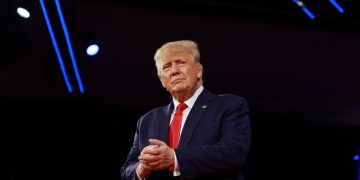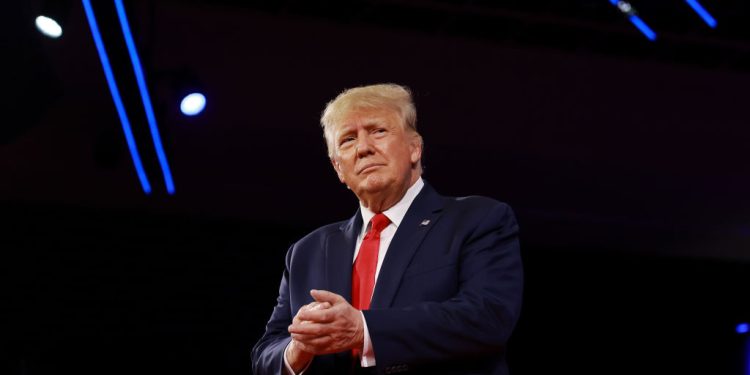There was some good news and some bad news for former President Donald Trump and his legal team Friday in a pair of decisions from an appellate judge in New York.
New York appeals court Associate Justice Peter Moulton issued a temporary stay that halted the breakup of a number of Trump-owned businesses, CNN reported Friday, but refused to throw out the fraud trial that had brought that decision about in the first place.
That stay, however, may prevent the dissolution of much of Trump’s business empire for no longer than a month.
Trump’s legal team argued that the businesses shouldn’t be broken up because, if Trump were to win an appeal against Judge Arthur Engoron’s decision to do so, it would be too late to reverse some of those actions.
Trump’s team hopes to see at least some parts of Engoron’s ruling reversed on appeal.
They also hope that some of or even most of New York Attorney General Letitia James’ case against Trump could be tossed because of an appeals court ruling from June that could be interpreted to mean that many of her accusations had passed the time allowed by the statute of limitation before they were filed.
Christoper Kise, one of Trump’s attorneys, argued that taking action against the companies before those decisions are finalized could harm 1,000 current employees, or possibly more.
“Engoron had ordered Trump to propose potential receivers by October 26, which would begin the process of dissolution,” CNN reported .
“[Engoron] clearly does not comprehend the scope of the chaos its decision has wrought,” Trump’s legal team argued in a court filing Friday before Moulton’s decision.
Some of the private homes occupied by Trump and some of the other defendants are are actually owned by limited liability corporations that could be affected by Engoron’s ruling, which Moulton said put them at risk of being sold out from under their occupants.
Trump’s team had also sought to delay the trail overall, but Moulton declined to intervene on that count.
The plaintiffs claimed that Trump’s attorneys had been unable “to point to any purported irreparable harm from proceeding with a trial that has already begun.” Apparently, Moulton agreed.
James’ team argued that delays in this trial could then bump it into conflict with other cases pending against Trump, causing domino effect that would make scheduling any of them problematic.
“If the trial here is delayed at all, there is a significant risk that defendants will request further delays of trial based on the deadlines in these other cases. Indeed, defendants already appear to be attempting to play one court against the other,” the motion read.
They also claimed that they had offered to enter into an agreement with Trump’s legal team to delay enforcement of the order canceling the business certificates for many of Trump’s businesses, but that Trump’s team had refused to discuss it with them.
Another factor weight against any trial delay, James’ team argued, were all the special arrangements the court had had to make, given the high profile of the proceedings.
The attorney general’s office noted “special security arrangements outside and inside the courthouse, many additional security and other court personnel to conduct those security arrangements, and special arrangements to ensure access for the press and public,” among the accommodations the court had already had to make.
This article appeared originally on The Western Journal.


























 Continue with Google
Continue with Google